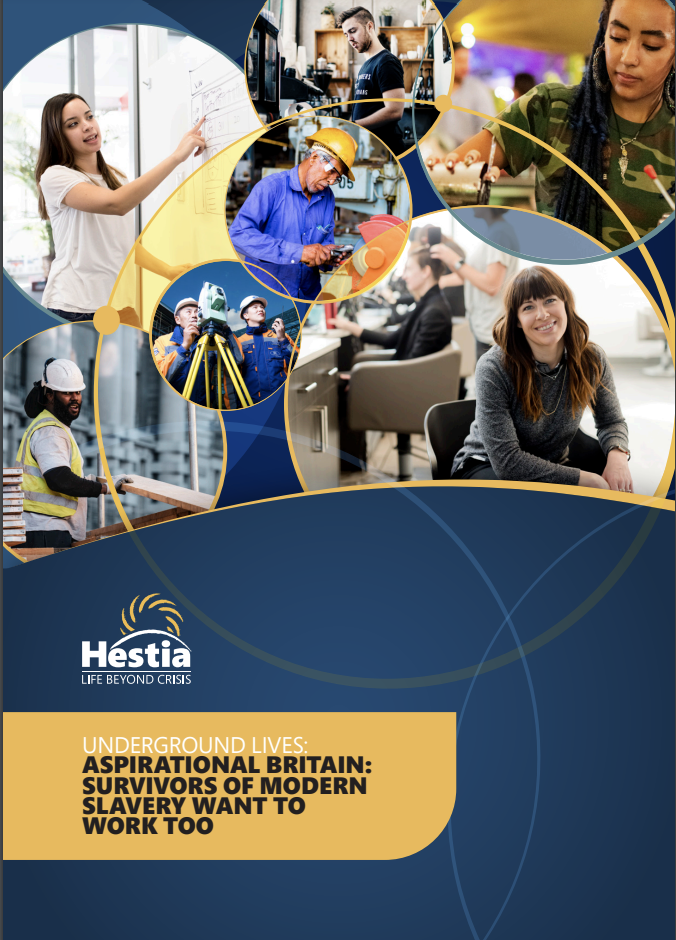Britain is in an employment crisis. Labour shortages are hitting record highs and firms are recruiting from abroad which is costly.
At the same time there are currently more than 7,000 survivors of modern slavery who are being supported by the Government, unable to work while their cases are reviewed in the National Referral Mechanism (NRM).
Hestia’s latest Underground Lives research found that, of the 228 survivors surveyed, 96% wanted to work.
“I want to give back to England; I want to work, pay taxes and contribute to society. There is so much turmoil in the world and I want to be part of the solution.” Survivor
Many are highly skilled – 1 in 4 have qualifications at university level or above. But they are caught up in a system where bureaucracy and red tape prevents them from unlocking their potential. Backlogs and delays are increasing, with 1 in 3 waiting more than three years for a decision. During that time, they are reliant on subsistence payments, donations, and food banks. They are de-skilled and their recovery is undermined.
Analysis by Pro Bono Economics estimates that allowing survivors to work during this time could generate a net economic benefit to society of £10m to £41m per year.
This is backed by employers who, with the right support, are keen to make use of those skills.
“We currently have more job vacancies in the country than we have unemployed people. The idea that we are stopping people from working who want to work and to build a life seems to me to be absolutely bizarre. It’s such a waste of human capital, such a waste of talent.” Employer
Survivors also tell us that an important part of their recovery is being able to give back, to use their skills to work and rebuild their lives.
While the benefits are clear, the current system contains too many barriers and needs to urgently change. Our recommendations are:
- Right to work: The Home Office to grant all survivors entering the National Referral Mechanism (NRM) the right to apply for a temporary right to work on receipt of a reasonable grounds decision.
- Recovery pathway to employment: The Home Office to work with survivors, the modern slavery sector and with businesses to develop a safe employment recovery pathway for all survivors entering the NRM.
- Employment support package: The Home Office to develop the Modern Slavery Victim Care Contract to include a core package of employmentrelated assessment and support for all survivors.

